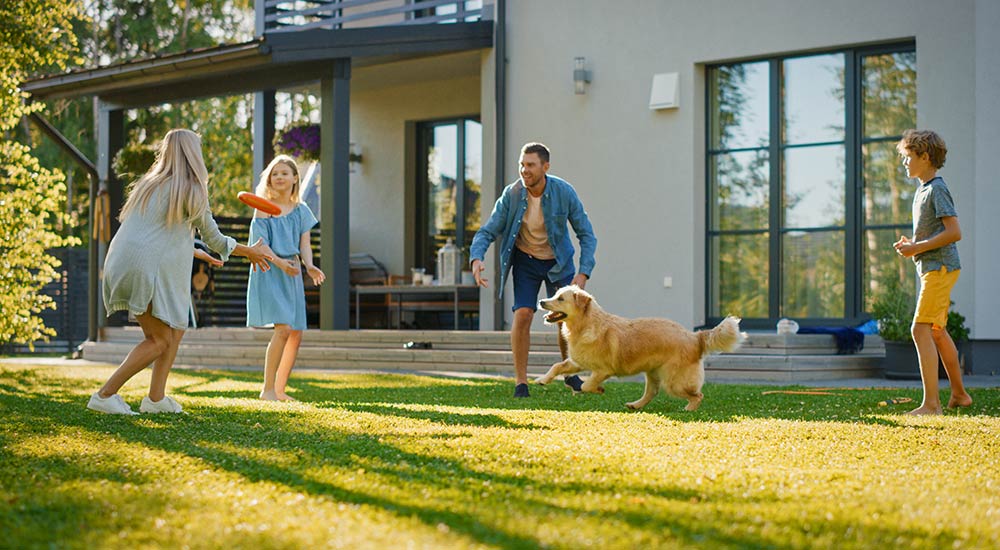Stay Prepared with Natural Disaster Insurance

From wildfires to hurricanes, any number of natural disasters can impact property in the United States. Governmental data shows a steady increase in disaster-related insurance claims, with $145 billion in combined damages making 2021 the third most costly year in U.S. history. Fortunately, protecting your property from out-of-pocket expenses is easy with the right insurance.
Common Natural Disasters that Affect Property Owners
No matter where you live in the United States, you are at risk of experiencing a natural disaster. Common disasters in the U.S. include:
- Severe thunderstorms
- Hurricanes
- Tornadoes
- Earthquakes
- Flooding
- Wildfires
Important Natural Disaster Insurance Coverages
Navigating insurance policies can be confusing, but rest assured — there is no hurricane insurance or tornado insurance needed. In most cases, the coverage you already have in place will be enough to protect you and your property in the event of weather-related damages.
Here are the important natural disaster insurance coverages you’ll want to consider:
Property Insurance
Does property insurance cover natural disasters? The short answer is yes! With the right coverage in place, your property insurance will pay to repair or replace any damages caused to:
- Your property
- Furniture and other items
- Outdoor items like fences, sheds and more
It’s important to know that in some states, earthquake coverage may be excluded from a policy. An independent insurance agent can help identify your unique risks and if earthquake coverage is included in your area. Likewise, while policies may cover flooding caused by things like burst pipes or sewage backups, they do not protect your property from natural flooding. For that, you’ll need a flood insurance policy.
Flood Insurance
As we said, natural flooding is the one thing not covered by a standard insurance policy. You’ll need work with your insurance agent or directly with the Federal Emergency Management Agency (FEMA) to build the right flood insurance policy for you. It’s important to remember that even if you aren’t in a high-risk zone, you are still at risk of flooding and without proper coverage you can expect to pay thousands to restore your property.
Auto Insurance
Why stop at protecting your property? It’s a good idea for anyone — especially those living in high-risk areas or who don’t use a garage — to consider auto insurance coverages that will protect your vehicle in the event of severe weather. With comprehensive insurance coverage, your auto insurance policy can help pay for damages caused by things like hail, tornadoes and flooding.
Disaster Preparedness and Recovery
Aside from insurance coverage, disaster preparedness is the best way to protect yourself, and ensure you recover faster. Here are a few tips:
Before the Storm
While you can’t predict a natural disaster, you can prepare for it. The steps you’ll need to take may change depending on the type of disaster you’re most likely to face, but here are some good items to help protect you from anything:
- Reinforce windows and doors to prevent damage in a storm
- Use sandbags to prevent floodwaters from entering
- Tie down or secure furniture and outdoor items before a storm begins
- Ensure your landscaping is clean and fire-retardant
- Know where your gas, water and electrical lines and how to shut them off
- Have a plan in place for how you’ll handle common disasters so you know what to do in an emergency
And don’t forget — conduct regular audits and ensure your insurance policies are up-to-date so you’re ready to smoothly navigate the claims process if necessary.
Recovering from a Natural Disaster
After a natural disaster, the most important thing is ensuring everyone is safe. If necessary, evacuate and find a safe place to relax while you wait out the rest of the process. Next, take inventory of the damage and begin the claims process. Be sure to take a lot of photos and list all items that will need to be repaired or replaced. You can work directly with your independent insurance agent, your insurance company, or (for flood insurance) FEMA to navigate the claims and payment process.
Talk to an independent insurance agent today to ensure you have the right insurance coverages.
Originally posted on October 10, 2022 and updated on June 18, 2025.

